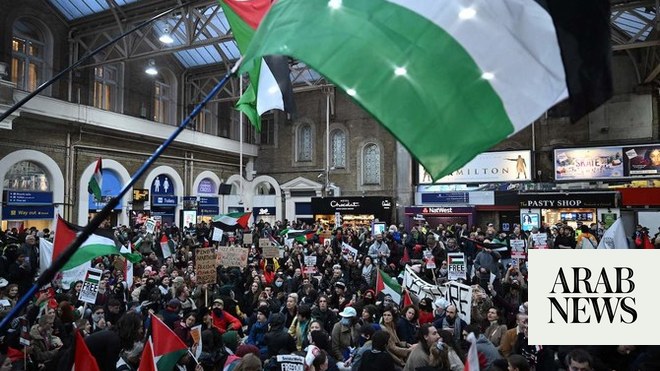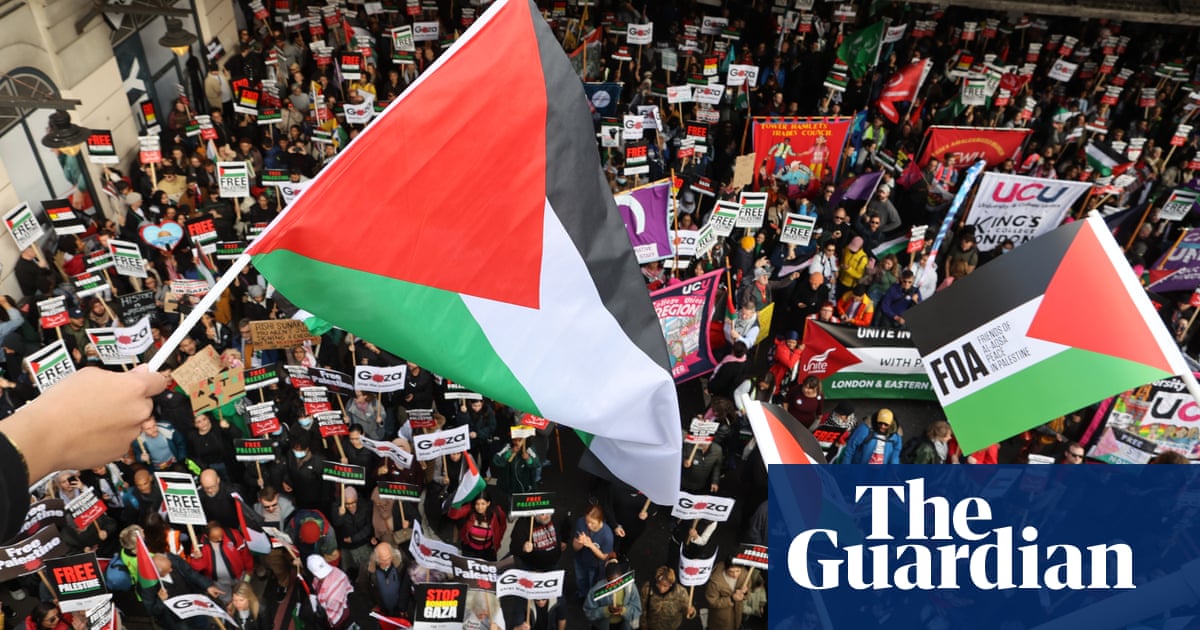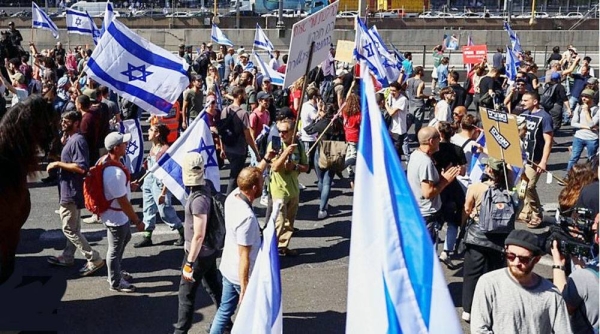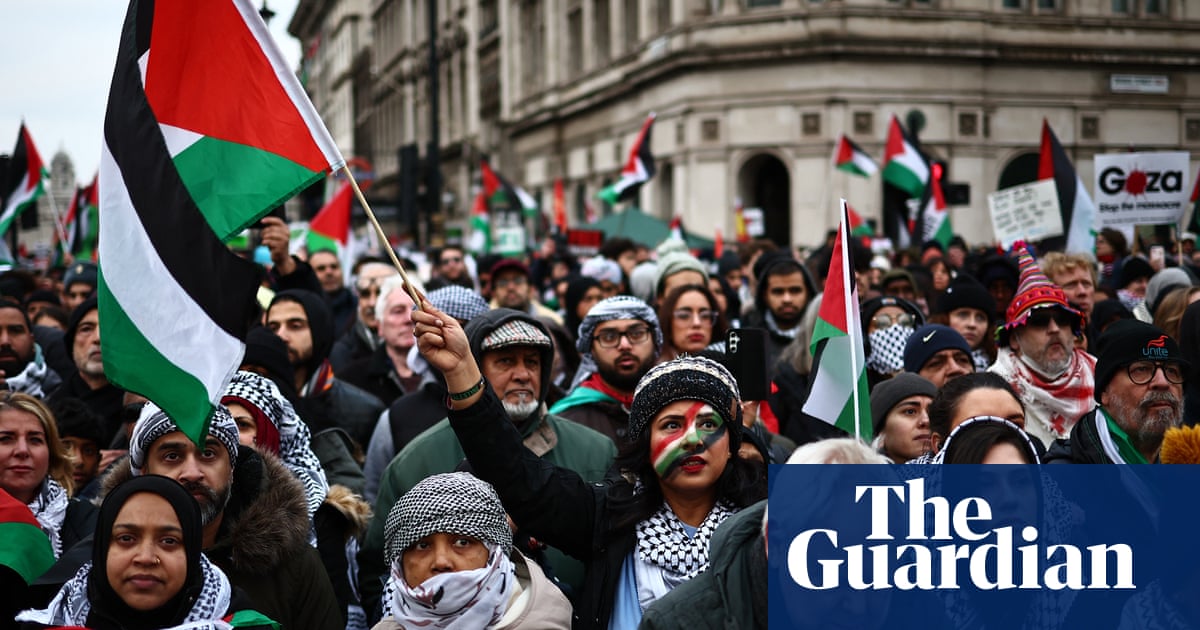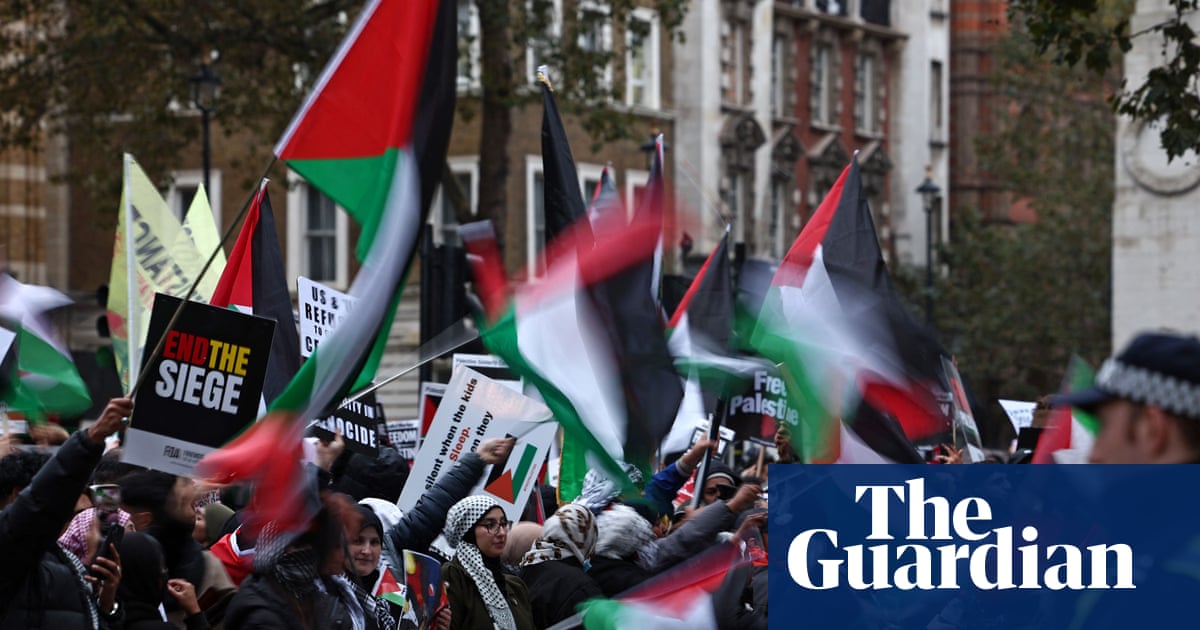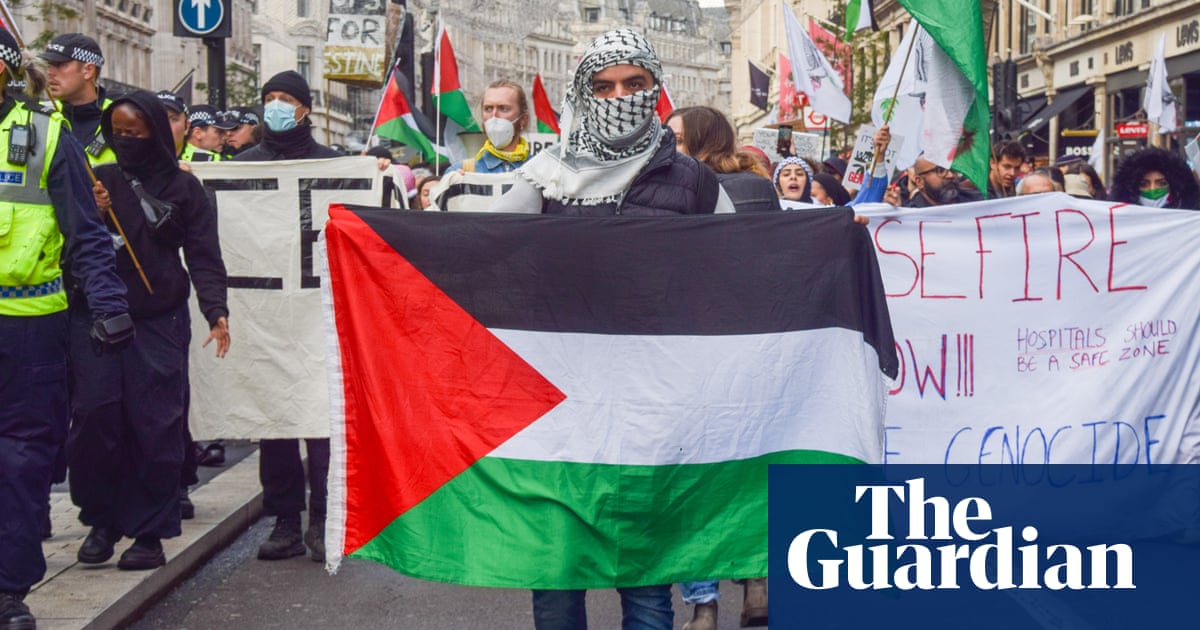
The organisers of the pro-Palestine march due to take place in London on Armistice Day believe “hundreds of thousands” of people will turn out for what they say will be one of Britain’s biggest days of mass protest.
Meanwhile, the Metropolitan police said the policing of the remembrance weekend would be “far greater and more complex than we’ve delivered before” and that officers would draw on “an extensive set of powers to prevent any disruption whatsoever”, with tight controls put on the movements of protesters.
Ben Jamal, the director of the Palestine Solidarity Campaign (PSC), a lead organiser of the march, said he understood that people would be travelling from all over the UK to march on Saturday from Park Lane towards the US embassy in south-west London.
On a stage set up near where Nine Elms becomes Battersea Park Road, speeches will be made by the former Labour leader Jeremy Corbyn, the actors Juliet Stevenson and Maxine Peake, and the head of the Palestinian mission to the UK, Husam Zomlot, among others.
“We think it is going to be huge,” Jamal said. In a statement issued on the eve of the march, the PSC said: “More than 500,000 people are expected to converge in London, making it one of the largest political marches in British history.”
There is little doubt among senior officers that there will be flashpoints at various times on Saturday, with concerns that groups could splinter off from the main march to cause disruption, and that far-right elements could seek to exploit the occasion.
The organisers’ request for two end points for the march, in order to alleviate the pressure on their stewards, was declined by the police on Thursday. They said they remained confident the event would still pass off peacefully.
People are being asked to assemble at about midday at Park Lane before starting the march at 12.45pm. The route goes past Grosvenor Place and Victoria, then over Vauxhall Road and on to Nine Elms and past the US embassy. Marchers will be asked by organisers to disperse at 4pm, with the police having put a 5pm deadline on when the march must end.
The Met said 1,850 officers would be on duty under the command of the deputy assistant commissioner Laurence Taylor, with a mutual aid system being triggered under which about 780 officers are being called up from outside London. Public order units and other response sections of the Met have had leave cancelled.
The Met commissioner, Sir Mark Rowley, has said he is keeping a close watch for any fresh intelligence that suggests there are new grounds to seek a banning order from the home secretary under section 13 of the 1986 Public Order Act.
As with similar previous protests, the march will have conditions imposed upon it under section 12 of the act, meaning that any protesters who diverge from the agreed route from Hyde Park could be liable to a fine of up to £2,500. There will be an exclusion zone covering Whitehall, Horse Guards Parade and the Westminster Abbey Field of Remembrance, from which marchers will be banned.
The Cenotaph will have a dedicated 24-hour police presence across the weekend. Protesters will not be allowed close to the US embassy nor to gather in the streets around the Israeli embassy in High Street Kensington. Anyone who does not disperse from key central London locations including Trafalgar Square and Piccadilly Circus will be liable to be arrested, the Met has said.
Officers have been granted section 60 and 60AA stop and search powers in Westminster and parts of Lambeth and Wandsworth, which include the right to ask a protester to remove an item of clothing that is concealing their identity. “This step is being taken in response to concerns that counter-protesters may be intending to confront those taking part in the main protest march,” the Met said.
Rishi Sunak has said he has been assured by Rowley that the Met will be able to prevent “serious public disorder”, with the government seemingly happy to pin blame on Britain’s most senior police chief in the event of disaster.
The march has been organised by a coalition of groups: the PSC, the Muslim Association of Britain, Friends of Al-Aqsa, Palestinian Forum in Britain, Stop the War and the Campaign for Nuclear Disarmament (CND).
The chief steward of the protest, Chris Nineham of Stop the War, had the same role for the 15 February 2003 anti-war protest against the invasion of Iraq – the largest ever such event in the UK, when an estimated 1.5 million people marched on the streets of London. He will be directing a team of 500 volunteer stewards on Saturday.
Since Hamas triggered the war with Israel on 7 October by killing 1,400 people and taking approximately 240 hostages, there have been a series of marches and assemblies in London and around the UK calling for a ceasefire. The largest attracted 100,000 people, according to police.
Nineham said: “This will be far and away the biggest of these series of demonstrations. I know it’s going to be a lot bigger than that. Just one coach agency in the north of England has booked 250 coaches for the demo. That’s just one agency.”
He said a complicating factor was that people would not be able to congregate in Hyde Park because of the Winter Wonderland event.
Nineham also raised concerns that the government’s rhetoric could make it more likely that there will be trouble on the margins of the protest, with the founder of the English Defence League, Tommy Robinson, among those on the far right seeking to mobilise supporters.
“I think both politically and practically we’re operating in difficult circumstances”, Nineham said. “Partly because, obviously, the government is trying to demonise us and telling lies about haters and stirring up, quite deliberately, opposition to us, and that has been their call in a way, some kind of call to arms, that has actually been answered by Tommy Robinson.”




